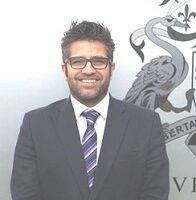Academy Governing Committees are established by the Board of Trustees.
Each Academy forms an Academy Governing Committee (AGC), where governors are appointed initially for a four year term of office.
Delegated by the Board of Trustees, the Chief Executive Officer, is responsible for the work of AGCs, working with the Director of Primary Education to set work programmes and schedule training.
The Director or Primary Education will be appointed to each Primary Academy’s AGC, supporting the Principal and Chair.
All governors must have an enhanced DBS (Disclosure & Barring Service) and section 128 direction check, which identifies whether someone is barred from management and/or governance.
An AGC may determine its own number, membership should include; CEO, Principal (who is ex-officio), parents, staff, and members of the community (and any other appointment the AGC agrees is necessary). The Vice-Principal is expected to attend and participate, but has no voting rights and is not a formal member of the AGC and serves in an observatory capacity.
The CEO, Principal and Chair (in consultation) may make appointments via co-option, which will then be ratified by the Committee, at a formal meeting.
Meetings are supported by a member of the Finance Team and a Governance Professional, who prepares agendas and maintains records of the meetings.
Chairs of Governors may meet on an informal basis, four times per year. They will be briefed on Trust matters, discuss key areas for development and help to formulate AGC business; the aim is to bridge the gap between trustees and governors.
It is important that governors feel free to make visits to the Academy, this should be arranged through the appropriate Governance Professional.
Each AGC will elect a governor for the following areas; Safeguarding/ Child Protection, Attendance and Behaviour, SEND and Pupil Premium.
Terms of reference
Quorum: One third of those governors currently serving.
Decisions between meetings can be arrived at through electronic means, providing at least 51% of the Committee contribute to the decision.
4 times per academic year (additional meetings may be called at the request of the CEO, Principal and Chair).
If there is significant disagreement by an AGC on a key piece of academy work, then the Chair should note the strong differences and refer the matter to the CEO, who will them arrange for Trustees to make the final decision.
















